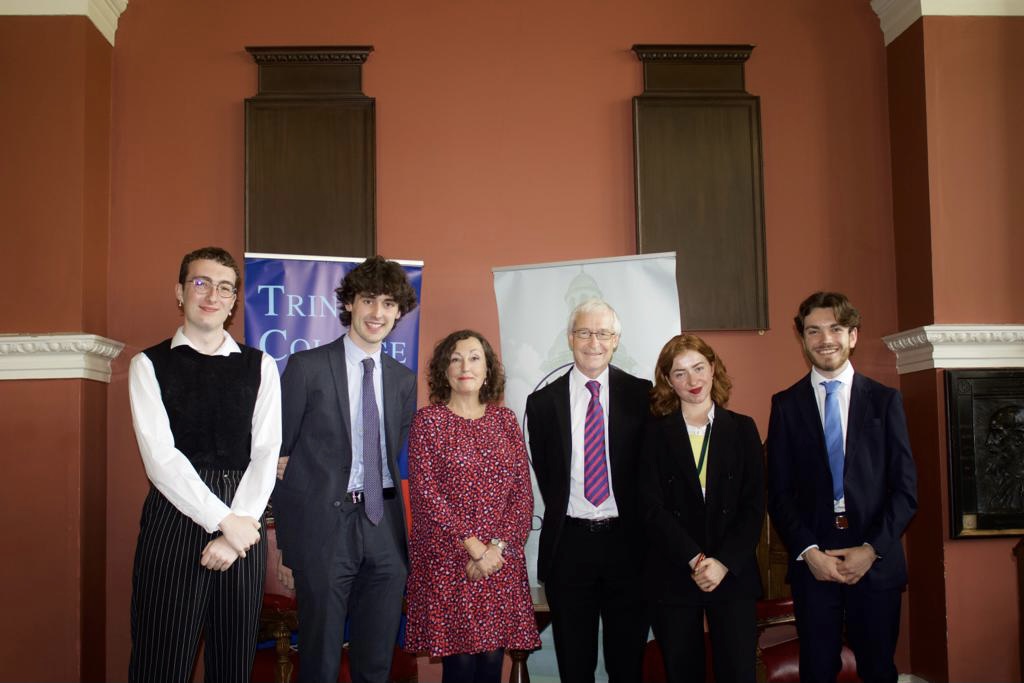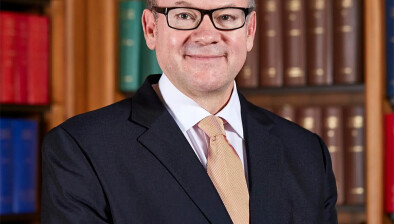UK Supreme Court justice Lord Burrows receives Trinity College Law Society award

Lord Burrows, a justice of the UK Supreme Court, has been given an award by the Trinity College Law Society for his contributions to private law.
The Trinity College Law Society, Trinity College Law Review and TriCon (Trinity Centre for Constitutional Law and Governance) hosted the judge, who was the inaugural speaker of the Distinguished Speakers Series for Volume XXVI and the first recipient of the Praeses Elit Award for the 89th Session.
The award was presented by Hugh Gallagher, editor-in-chief of the Law Review, and Ruth Brady, auditor of the Law Society. The event was sponsored by Arthur Cox.
Mr Gallagher said: “We were thrilled to have Lord Burrows as our inaugural guest of the academic year. His unique background brought into sharp focus issues striking at the heart of academic life in Trinity. The insight he shared sparked critical discussion amongst students and faculty alike.”
The Praeses Elit Award is given to those who have left an indelible impact in their chosen field, and who have advanced discourse and societal thought in the process. The Award was founded by Mary Robinson, former auditor of the Law Society, and later the first woman president of Ireland and UN high commissioner.
The Trinity College Law Review runs the Distinguished Speaker Series to promote legal discourse and since 2006 has seen countless legal experts speak at Trinity College on a range of topical issues to students.
Lord Burrows has made an immense contribution to the area of private law both as an academic and now as a Supreme Court justice. He was the first academic to be appointed to the UK Supreme Court directly from academia and previously served as a law commissioner for England and Wales and president of the Society of Legal Scholars.
He was elected a fellow of the British Academy and has written many books and articles especially on contract, tort, unjust enrichment, and statute law. He was formerly professor of the law of England at the University of Oxford and a fellow of All Souls College.
In the course of his address to students, entitled ‘Perspectives on the Judiciary and the Academy’, he shared his reflections on the transition from his work as an academic to sitting as a Supreme Court justice.
He shared insights on the practicalities of writing judgments, the necessary generalism of his position on the court and the nature of academic freedom. Professor Aileen Kavanagh, professor of constitutional governance and director of TriCon, interviewed Lord Burrows following his address.
Their conversation touched on the public law dimensions of the Supreme Court of the United Kingdom and the dialogue between academics and members of the judiciary. The event closed with a series of questions taken from the students in attendance raising matters related to comparative constitutional law and the audience for which a judgment may be written.










